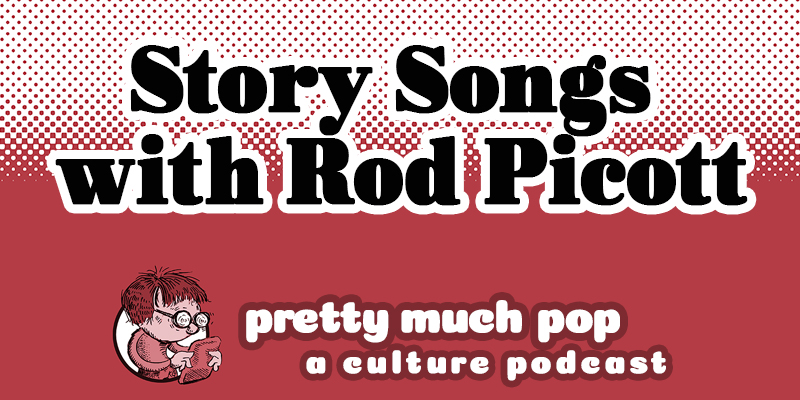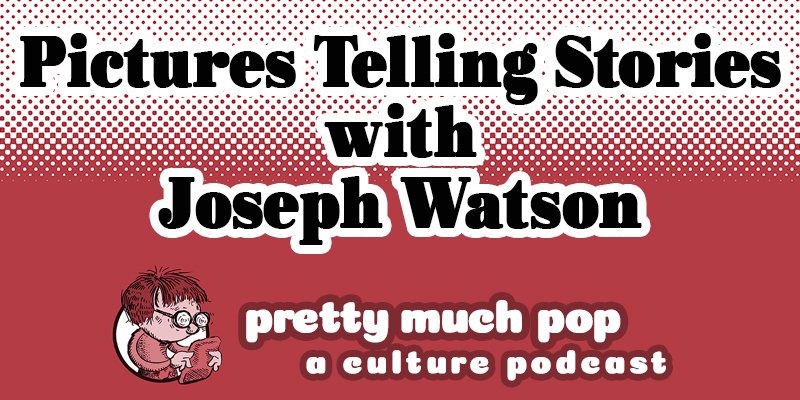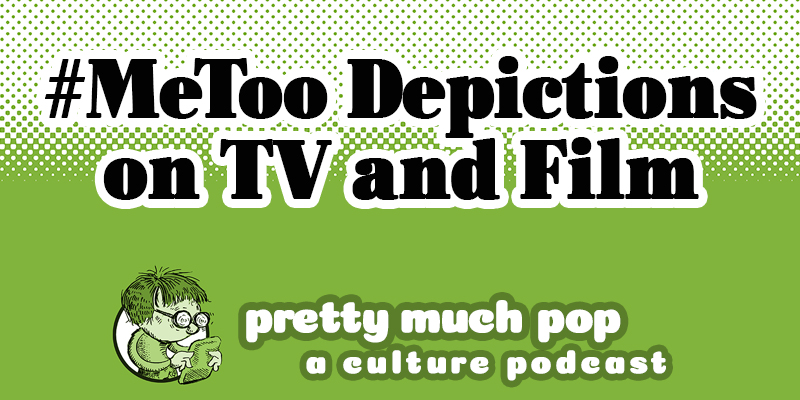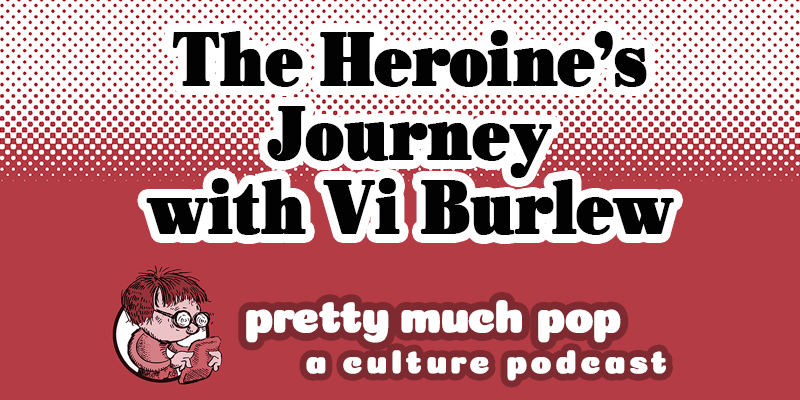
Plenty of songs purport to tell stories, and the narrative ballad of course has a long enough history that the two forms certainly aren’t alien. But how do our listening practices conditioned by pop music jibe with recognizing and understanding narrative?
Singer/songwriter and short story author Rod Picott joins your hosts Mark Linsenmayer, Erica Spyres, and Brian Hirt to talk about classics by writers like Bob Dylan and Johnny Cash, formative nightmares like “Leader of the Pack” and “Escape (The Pina Colada Song), borderline cases like “Bohemian Rhapsody,” and more. We also consider how this form relates to musical theater, music videos, soundtracks, and commercials.
We tried to stick to popular songs, but most of us are pretty old. You can listen and read the lyrics if you’re not following:
- “Mack the Knife” by Bobby Darin
- “The Long Black Veil” by Johnny Cash
- “Coward of the Country” by Kenny Rogers
- “Leader of the Pack” by The Shangri-Las
- “Bohemian Rhapsody” by Queen
- “Hurricane” by Bob Dylan
- “Scenes from an Italian Restaurant” by Billy Joel
- “Escape (The Pina Colada Song)” by Rupert Holmes (Watch him on Burt Sugarman’s Midnight Special. Yes, there was a Taco Bell commercial that used this song.)
- “Paradise by the Dashboard Light” by Meat Loaf (written by Jim Steinman). Read Tim Quirk’s extensive analysis of this disturbing song.
- “Famous Blue Raincoat” by Leonard Cohen
- “Jack and Diane” by John Cougar Mellencamp
- “Glory Days” by Bruce Springsteen
- “Fortunate Son” by Creedence Clearwater Revival
- “Tiger Tom Dixon’s Blues” by Rod Picott
Why these songs? Well, we found a few lists online:
- “Inventory: 26 Songs That are Just as Good as Short Stories” from the AV Club
- “15 Songs That Tell Better Stories Than Your Favorite Novel” by Josue Brocca
- “168 Favorite Pop, Rock, and Country Songs That Tell a Story” from FlourishAnyway
Hear Mark interview Rod on Nakedly Examined Music. Learn more at rodpicott.com.
Hear more of this podcast at prettymuchpop.com. This episode includes bonus discussion you can access by supporting the podcast at patreon.com/prettymuchpop. This time, an update on Rod’s music plus political discussion and more.
This podcast is part of the Partially Examined Life podcast network.
Pretty Much Pop: A Culture Podcast is the first podcast curated by Open Culture. Browse all Pretty Much Pop posts.








